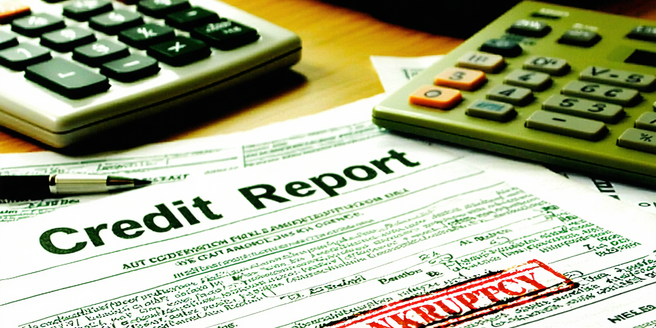Understanding Bankruptcy and Its Impact on Credit Scores
Bankruptcy can be a challenging decision, but it can also provide a fresh financial start. However, it’s crucial to understand its impact on your credit scores. Filing for bankruptcy could lower your credit score significantly, as it stays on your credit report for seven to ten years. This might make it difficult to obtain new credit or loans during this period. Lenders may view you as a higher risk, which could result in higher interest rates or even rejections. Each type of bankruptcy, whether it be Chapter 7 or Chapter 13, is reported differently and influences your credit score to varying degrees. It’s important to be aware of these ramifications as they play a pivotal role in your future financial planning and the rebuilding process of your credit health.
Immediate Effects of Bankruptcy on Credit History
Immediately after declaring bankruptcy, your credit history will reflect this significant event. The first noticeable change will be a dip in your credit score, often by several hundred points. This major decrease can have sweeping consequences, such as making loans or credit approvals challenging to secure. Additionally, your bankruptcy filing will be publicly available, which could limit your financial options. Credit reports will list the bankruptcy, impacting your ability to get favorable rates. The presence of bankruptcy also influences your credit utilization ratio and may result in the cancellation of current credit accounts. Navigating these immediate effects requires patience and a strategic approach to slowly rebuilding your creditworthiness. It is vital to understand that although bankruptcy is a tough process, it does not make financial recovery impossible.
Rebuilding Credit Post-Bankruptcy: First Steps
After bankruptcy, the road to rebuilding credit begins with small yet crucial steps. Start by obtaining a secured credit card, which requires a deposit equating to your credit limit. Make timely payments and keep your balance low to improve your credit score gradually. It’s beneficial to regularly review your credit report for any errors or discrepancies, ensuring your financial accuracy. Engaging with credit counseling services can provide insights into managing your financial health better. Additionally, setting up a budget to monitor expenses and savings can create a stable financial foundation. Re-establishing trust with creditors through continuous responsible credit behavior is critical. Over time, these actions can contribute to an improved credit score, demonstrating your commitment to financial responsibility and aiding in regaining your fiscal credibility.
Strategies for Strengthening Credit Over Time
Strengthening credit over time post-bankruptcy involves strategic and disciplined financial practices. One effective strategy is to diversify your credit portfolio by managing a mix of credit lines responsibly, such as installment loans or secured credit cards. Consistent, on-time payments for all financial obligations play a significant role in improving creditworthiness. It’s also crucial to maintain a low credit utilization ratio, ideally below 30%, to show responsible credit behavior. Monitoring your credit report for any discrepancies regularly can help ensure accuracy and prevent negative impacts from incorrect information. Additionally, building an emergency fund provides financial security and reduces reliance on credit. Over time, these strategies help in establishing a positive credit history, gradually elevating your credit score, which ultimately opens up more favorable financial opportunities.
Avoiding Common Pitfalls in Credit Recovery After Bankruptcy
Avoiding pitfalls in credit recovery post-bankruptcy is vital to regaining financial stability. One common mistake is applying for too much new credit at once. Each application generates a hard inquiry, potentially lowering your credit score. Additionally, it’s essential to live within your means and not fall back into old spending habits that led to bankruptcy. Maintaining regular and consistent payments on any new accounts established is crucial. Over-reliance on secured credit can also be a stumbling block if not managed correctly. Another pitfall is neglecting to check credit reports for errors, as inaccuracies can hinder credit recovery efforts. Educating yourself on financial literacy and setting clear budgeting goals can prevent these mistakes. By being vigilant, you can gradually rebuild your credit and secure a bright financial future.


